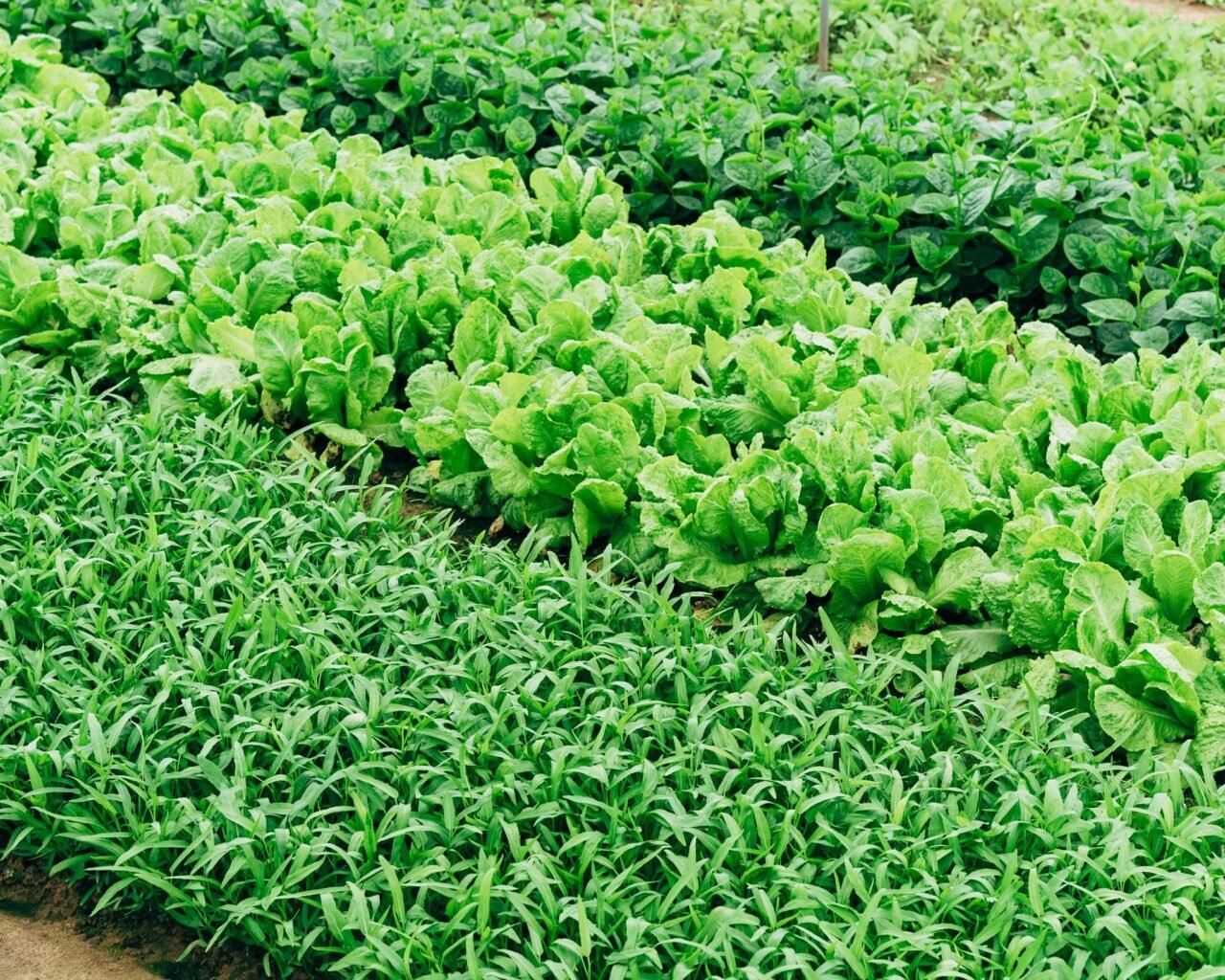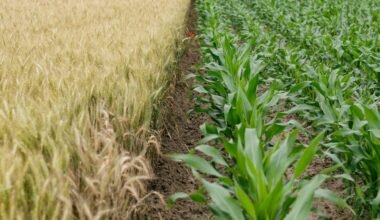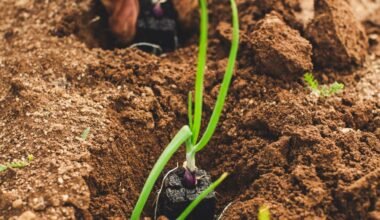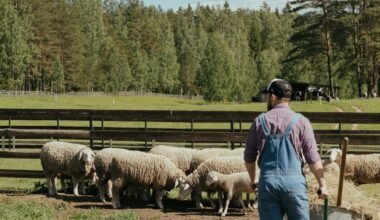As a farmer or home gardener looking to adopt sustainable practices, you may be curious to learn more about organic farming.Organic farming aims to produce food using natural substances and processes while preserving biodiversity and long-term soil fertility.Synthetic fertilizers, pesticides, and genetically modified organisms are prohibited.
Instead, organic farmers rely on crop rotation, compost, green manures, and natural pest control methods to maintain soil health and control pests.The result is produce, meat, dairy, and processed foods with minimal chemical residues that many believe are better for human health and the environment.
If you’re concerned about the effects of industrial agriculture and want to try your hand at growing food in an eco-friendly way, organic farming could be for you.In this beginner’s guide, we’ll explore the core principles of organic agriculture and how you can start implementing them.
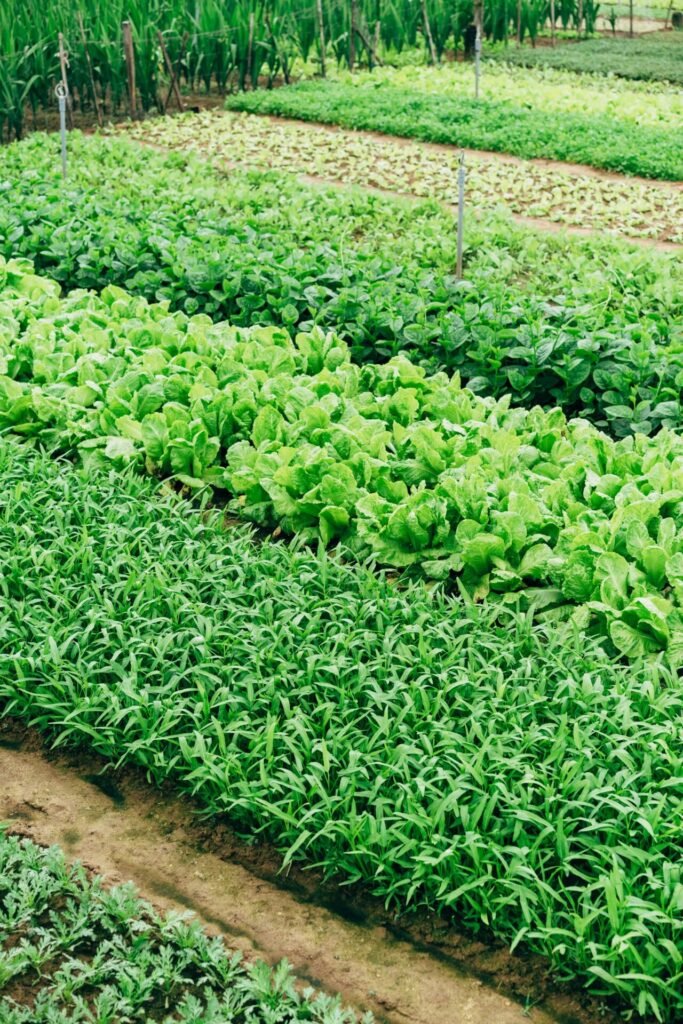
What Is Organic Farming?
Organic farming is an agricultural method that uses sustainable practices to cultivate food and other crops. It avoids the use of synthetic chemicals, genetically modified organisms, and ionizing radiation. Instead, organic farmers employ crop rotation, compost, and natural pest control methods to produce food in an environmentally friendly manner.
The core principles of organic farming include:
- Healthy soil. Organic farming maintains and replenishes the fertility of the soil using compost, cover crops, and crop rotation. These techniques help build organic matter in the soil and foster microbial activity, thereby improving soil structure and health.
- Natural pest control. Organic farmers use beneficial insects, traps, barriers, and natural repellents instead of synthetic pesticides to control pests, weeds, and diseases. They choose crop varieties that are naturally resistant to disease and pests.
- Avoiding GMOs and chemicals. Organic standards prohibit the use of genetically engineered seeds and synthetic fertilizers, herbicides, and pesticides. Only natural substances and minimal tillage are allowed.
- Animal welfare. Organic meat, poultry, eggs, and dairy products come from animals fed an organic, vegetarian diet and given access to the outdoors. Antibiotics and growth hormones are prohibited.
- Fairness and sustainability. Organic farming protects the long term health of ecosystems and people. It aims to produce nutritious food in a humane and fair trade environment.
In summary, organic farming is an agricultural system that relies on ecologically balanced practices to produce food sustainably while caring for the environment, farmers, and communities. By choosing organic produce and products, you support an ethical food system that nourishes both human health and the planet.
The Principles and Practices of Organic Farming
To farm organically means cultivating healthy soil and crops using ecologically balanced practices. The core principles of organic farming include:
Healthy Soil
- Organic farmers nourish the soil with compost and cover crops, not synthetic fertilizers. Healthy soil is the foundation for healthy food and a sustainable ecosystem. By rotating crops, using compost, and cover cropping, organic farmers build up soil structure and fertility over time without damaging the environment.
Ecological Balance
- Organic farmers promote biodiversity and natural ecological relationships on the farm. They plant a variety of crops, foster natural predators of common pests, and avoid the use of synthetic pesticides, herbicides, and genetically modified organisms (GMOs) which can disrupt the local ecology.
Sustainability
- Organic farming is sustainable, meaning it can continue indefinitely without damaging the environment. It relies on renewable resources and natural processes rather than nonrenewable inputs. Organic farmers avoid pollution and waste, using practices like composting, crop rotation, and natural pest management which are sustainable over the long term.
Animal Welfare
- Organic farming maintains high standards for animal welfare. Organic livestock are given access to the outdoors, fresh air, and sunlight, and they are fed 100% organic feed grown on site. Antibiotics and growth hormones are prohibited.
By following these principles, organic farmers are able to cultivate food and crops in a sustainable manner while protecting environmental and human health. For many, organic food simply tastes better, too, as it is grown naturally and sustainably.
The Benefits of Organic Farming
Organic farming has numerous benefits over conventional farming methods.
Improved Soil Health
- Organic farming helps build healthy soil by increasing organic matter and microbial activity. It uses natural fertilizers like compost, manure, and crop rotation to improve soil structure and provide nutrients to plants. This leads to better water retention, aeration, and drainage in the soil. Healthy soil means healthy plants that are better able to resist disease and environmental stress.
Environmental Protection
- Organic farming is better for the environment. It does not use synthetic fertilizers and pesticides that can pollute the air, water, and soil. This helps protect local wildlife and biodiversity. Organic methods like crop rotation and cover cropping also help prevent soil erosion by keeping the soil covered. These sustainable practices allow farmers to preserve natural resources for future generations.
Higher Nutrient Density
- Organic food tends to be more nutritious. It has higher amounts of antioxidants and beneficial plant compounds. Multiple studies have found organic meat, dairy, and produce to have higher amounts of vitamins, minerals, and healthy fats like omega-3 fatty acids. By avoiding the use of chemical pesticides, organic farming produces crops with superior nutritional quality.
Economic Viability
- Although organic food is often more expensive, organic farming can be economically viable. The organic food market is growing fast and offers farmers higher premiums for their crops. Organic farming also reduces costs over time by decreasing reliance on expensive chemical inputs. When done properly, organic farming can be very profitable for farmers.
In summary, organic farming provides substantial benefits through improving soil health, protecting the environment, increasing the nutritional content of food, and offering economic opportunities. By supporting organic farmers, we can all enjoy these benefits and help build a sustainable food system for future generations.
Getting Started With Organic Farming
Getting started with organic farming requires careful planning and preparation. To begin, determine if your property is suitable for organic farming. The land should be free of chemical residues and located in an area with clean air, water, and soil. Once you have secured suitable land, follow these steps to get your organic farm up and running:
Develop a business plan
A comprehensive business plan will map out your mission, values, short-term and long-term goals. It should include:
- Market analysis: Evaluate your target market and competitors. Assess the demand for your organic crops or products.
- Operational plan: Determine the layout and infrastructure of your farm including irrigation, crop rotation plans, equipment, storage, and more. Plan for organic certification and permits.
- Financial plan: Create financial projections including startup costs, operating expenses, revenue streams, and profitability. Secure financing if needed.
Implement sustainable practices
Organic farming aims to be sustainable and self-sufficient. Key practices include:
- Using organic fertilizers and natural pest control methods instead of chemicals. Compost and manure are excellent fertilizers.
- Diversifying crops and livestock. Rotate where crops are planted each season and raise multiple types of plants and animals.
- Conserving resources like water, soil, and energy. Use drip irrigation, cover crops, and renewable energy when possible.
- Caring for the local environment. Provide natural habitats for native plants, animals, and pollinators.
Obtain organic certification
To sell your products as “organic,” you must obtain certification from an accredited certifying agency. They will evaluate your farm to ensure you meet organic standards before granting certification. Certification may take several years as you implement sustainable practices and transition land from conventional to organic farming.
With dedication and patience, you can build a successful organic farm using natural methods that nourish the land and your community. Start small, learn as you go, and enjoy connecting with nature in this rewarding vocation. The key is maintaining the delicate balance of environmental, social and financial sustainability.
Tips for Transitioning to Organic Farming
Transitioning from conventional to organic farming requires careful planning and preparation. Here are some tips to help you make the switch:
Do your research
- Study organic certification standards and learn organic farming methods. Determine which organic crops or livestock are suitable for your farm. Research organic fertilizers, pest control options, and marketing opportunities.
Develop a transition plan
- Create a plan to convert your farm over 3 years as required for organic certification. Outline how you will implement organic practices, build soil health, and prevent contamination from prohibited substances. Include crop rotation, cover cropping, and integrating livestock if applicable.
Prepare your soil
- Building soil organic matter and biological activity is key. Stop using synthetic fertilizers and pesticides and instead use compost, manure, and cover crops. Rotate crops annually and plant cover crops to increase organic matter, improve soil structure, and prevent erosion.
Control pests responsibly
- Use physical, mechanical, and biological controls. Promote beneficial insects and biodiversity. Scout regularly and use selective pesticides derived from natural materials as a last resort. Remove disease vectors and habitat. Employ crop rotation, resistant varieties, and cultivation techniques that discourage pests.
Market your organic products
- Develop relationships with organic buyers, processors, and distributors. Market to health-conscious consumers at farmers markets, food co-ops, and natural grocers. Consider joining a food hub or cooperative to increase your reach. Charge premium prices to offset higher production costs.
Obtain organic certification (optional)
- Apply for certification with an accredited certifying agency. They will inspect your farm to verify you are following organic standards before granting certification. Certification allows you to sell organic products for a higher price, but is not required for small local sales. It provides credibility and allows interstate commerce.
Transitioning to organic farming takes dedication, but by following these tips you’ll be well on your way to running a successful organic farm. With time and experience, organic farming can be very rewarding.
As you embark on your journey into the world of organic farming, it’s essential to delve deeper into some key aspects that form the backbone of this sustainable approach.
In the following sections, we’ll explore essential techniques for organic pest and weed control, the importance of organic fertilizers and soil health, and the necessary certification and regulations that guide organic farming practices. Understanding these facets will equip you with a comprehensive foundation for your organic farming endeavors.
Organic Pest and Weed Control Methods
Organic pest and weed control focuses on proactively creating healthy soil and plant conditions so that plants can defend themselves, and only using natural controls when needed. There are several effective methods organic farmers employ:
Crop Rotation
- Rotating crop locations annually disrupts pest and weed reproduction cycles. By planting different crops each season, their food sources and habitats are removed. This also naturally balances soil nutrients over time. Examples of good rotation combinations are:
- Legumes (peas, beans) and grains (wheat, oats)
- Leafy greens (lettuce, spinach) and brassicas (broccoli, kale)
- Nightshades (tomatoes, peppers) and alliums (onions, garlic)
Companion Planting
- Strategically planting specific crops together can naturally repel pests and attract beneficial insects. For example, planting basil with tomatoes helps repel tomato hornworms and aphids. Coriander, dill or chamomile planted with lettuce draws parasitic wasps that prey on aphids. Other examples include beans and squash, cabbage and thyme, or carrots and radishes.
Natural Pest Management
- Organic farmers are masters of eco-friendly pest control. They select disease-resistant crop varieties, practice crop rotation, and enlist the help of beneficial insects like ladybugs. Additionally, they deploy natural remedies such as neem oil and Bt (Bacillus thuringiensis), derived from natural materials and microorganisms, to effectively manage common garden pests.
- But it doesn’t stop there. Organic farming goes beyond chemicals. It fosters a harmonious ecosystem by introducing and attracting natural predators like ladybugs, lacewings, parasitic wasps, birds, bats, frogs, and spiders. Creating habitats for these allies with birdhouses, bat boxes, ponds, and wildflower borders encourages them to maintain the ecological balance by preying on aphids, mites, caterpillars, and other pests.
Physical Barriers and Row Covers
- Using physical barriers prevents pests from reaching plants. Floating row covers, mesh nets and fencing all protect crops from damage. Barriers also prevent weed growth by blocking sunlight. They must be removed at flowering time for pollination, then replaced to extend the harvest.
Mulching
- Placing an organic mulch like straw, grass clippings, leaves or compost around plants and between rows smothers weeds, retains moisture in the soil, and adds organic matter as it decomposes. 2 to 3 inches of mulch is typical. It also protects the soil from erosion and compaction. Mulching is one of the simplest but most effective methods for weed control in organic farming.
Organic Fertilizers and Soil Health
Organic fertilizers and soil health are crucial to organic farming. To grow food organically, you must build up the soil with natural amendments and fertilizers. Synthetic fertilizers are prohibited.
Compost and Manure
- Compost and manure add organic matter to the soil which helps improve soil structure and provides nutrients to plants. Compost can be made from food scraps, grass clippings, leaves, and animal manure. Manure from chickens, cows, horses, and rabbits can be composted and added to soil. These organic materials release nutrients slowly, so they won’t burn plants. They also feed the microorganisms and earthworms in the soil.
Cover Crops and Crop Rotation
- Cover crops, like clover, rye, and buckwheat, are planted to cover and protect the soil when fields are not in use. They prevent erosion and weed growth, add organic matter and nutrients to the soil, and some even fix nitrogen from the air. Crop rotation involves planting different crops in the same area from season to season. This disrupts pest and disease cycles, replenishes the soil, and provides nutrients for the next crop. Legume crops, like peas or beans, which fix nitrogen should be rotated with nitrogen-hungry crops like corn.
By improving soil health and using natural methods, organic farmers are able to grow healthy, nutritious food sustainably while protecting and preserving natural resources. Following organic practices helps ensure safe, ethical food production for both current and future generations.
Organic Certification and Regulations
To market your organic products, your farm must become certified organic. Organic certification is a process in which inspectors evaluate your farm’s growing and handling methods to determine if they comply with organic standards. Becoming certified organic allows you to sell your products as “organic” and fetch higher premiums.
The National Organic Program (NOP)
- The NOP develops the standards for organic farming and products in the U.S. The NOP organic standards cover the methods, practices, and substances used in producing and handling crops, livestock, and processed agricultural products. Farms and handling operations that meet NOP standards can become certified organic.
Choosing a Certifying Agency
- To become certified organic, you will need to work with an accredited organic certifying agency. Accredited certifying agencies are authorized by the USDA to certify farms and businesses to the NOP organic standards. Do some research to find certifying agencies in your area that certify the types of organic products you plan to produce.
The Certification Process
The organic certification process typically takes 9-15 months to complete. It involves five main steps:
- Application – You submit an application with details about your organic systems plan and pay an application fee.
- Review – The certifying agency reviews your application to ensure it is complete before assigning an inspector.
- Inspection – An inspector conducts an on-site inspection of your farm. The inspection verifies that your organic systems plan is being properly implemented.
- Review and Decision – The certifying agency reviews the inspector’s report and determines if your farm complies with organic standards. If compliant, certification is granted. If not, you must make corrections.
- Continual Compliance – To maintain certification, your farm must undergo annual inspections and fees to ensure continued compliance with organic standards.
By following these certification requirements and standards, your farm will be well on its way to becoming a certified organic producer and accessing new organic market opportunities. Continuous learning and improvement will help ensure your farm remains compliant with organic regulations over the long run.
Conclusion
As you have learned, organic farming is an agricultural practice that focuses on sustainability and natural plant and soil health. By avoiding the use of synthetic fertilizers and pesticides, organic farmers are able to produce food that is better for the environment and human health.
While the yields may be lower and the costs higher, the benefits to society are substantial. Organic farming is not just a passing trend but a viable solution to many of the environmental problems caused by industrial agriculture.
By choosing organic produce and other organic products, you are supporting a system that nurtures the land and the people who work it. You have the power to create positive change through the choices you make every day. Going organic is a simple step that leads to a healthier future for us all.

